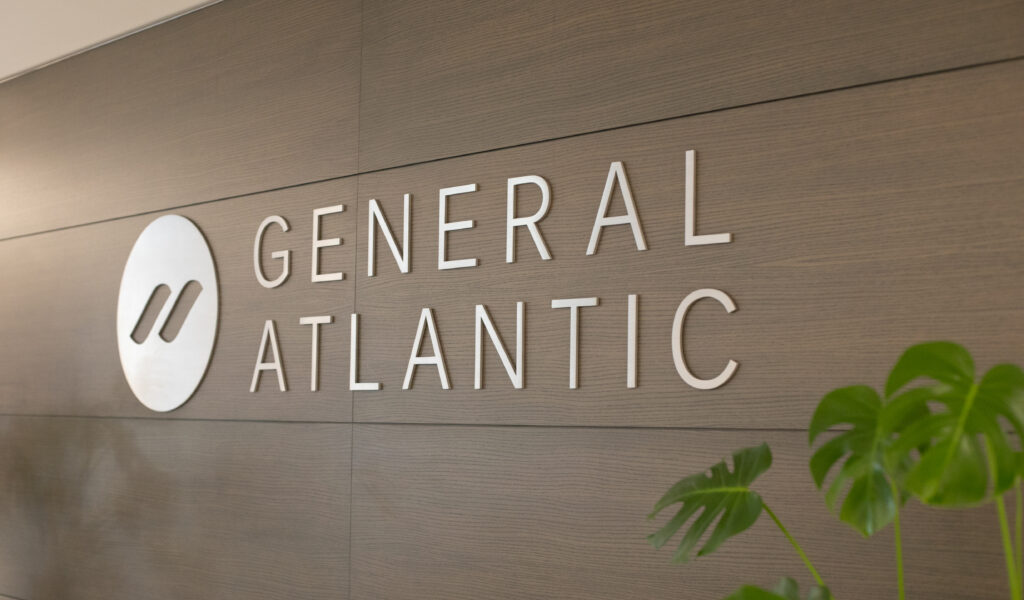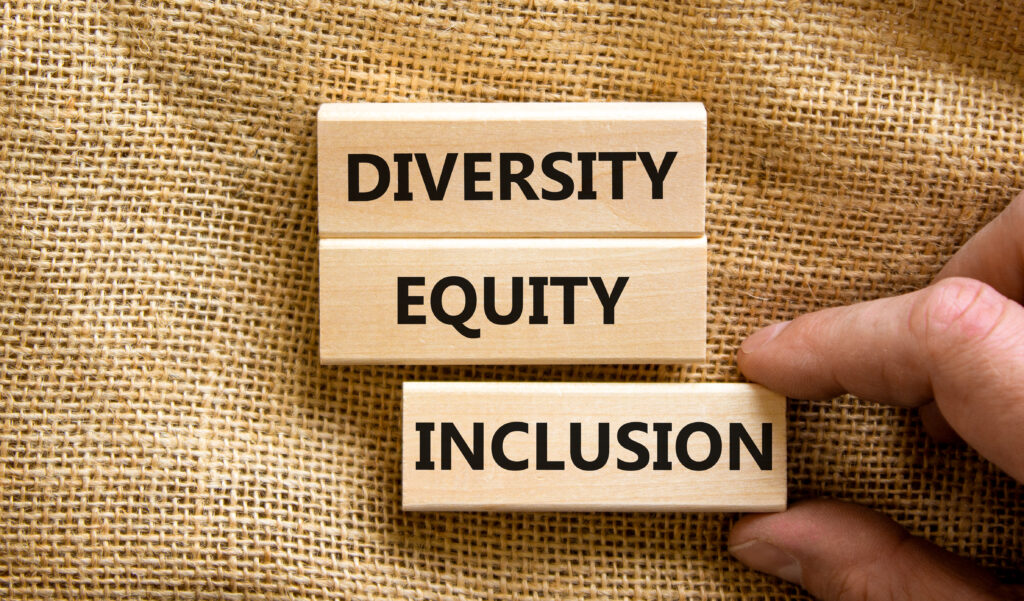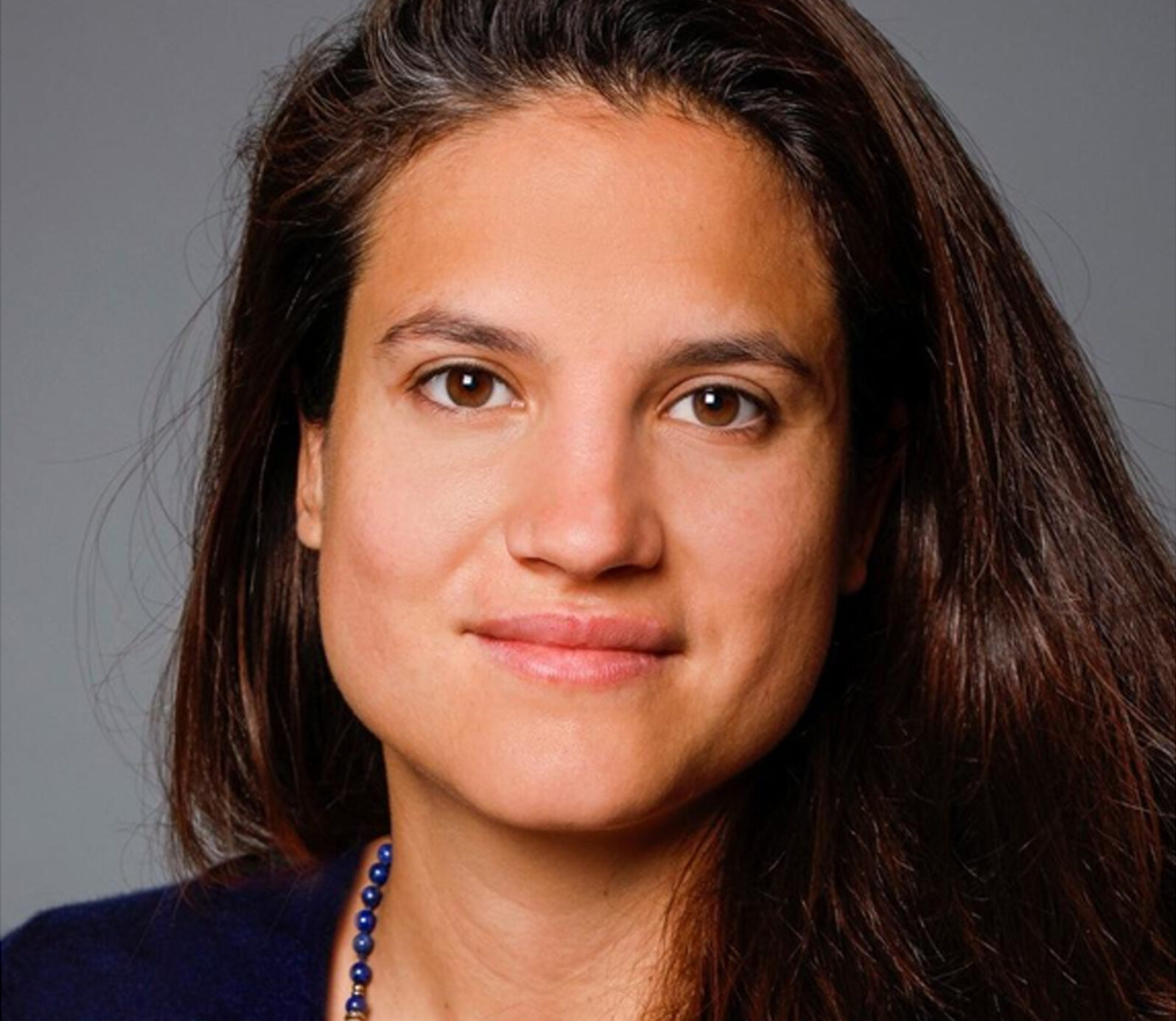I met Cornelia Gomez, Head of ESG & Sustainability at General Atlantic several years ago when I was doing a research project on sustainability in the private equity industry. The results were published in the Harvard Business Review as “Private Equity Should Take the Lead in Sustainability.” My interviews included both general partners (GPs) and limited partners (LPs). One of the LPs suggested that Cornelia would be a great person to talk to. At that time, she was Head of ESG at PAI Partners, a PE firm based in Paris. We had a great conversation and have stayed in touch since then. Cornelia is now based in London. On one of my trips there, I asked her if she’d be willing to do an interview with me and she kindly agreed.

Cornelia Gomez, Head of ESG & Sustainability at General Atlantic
Eccles: Cornelia, thanks for taking the time to talk to me. To get us started, please tell me a little bit about your personal background.
Gomez: It’s my pleasure! I guess to start, I am quintessentially European: French— or Parisian, rather—with Spanish and Sephardic Greek roots, significant periods spent in Italy, and a Dutch husband. That said, I always felt a strong calling for more distant shores, especially Asia and Sub-Saharan Africa. For a while, I wanted to work for Médecins Sans Frontieres, but I gave up this dream quite young as the mere sight of blood would never fail to make me queasy. I thought Economy and Business would be safer in that respect and after joining École Supérieure de Commerce de Paris (ESCP Europe), I took a program that led to studying in three countries (UK, Spain and France). I remember not really liking those years; I just wanted to get practical, build things, and have an impact.
Eccles: Wow, as an American I have to say I’m very impressed with your rich cultural heritage! Sorry to hear about those three years so let’s move on. What was your first job?
Gomez: It was at Groupe Casino, a French publicly listed retail group. I was very lucky because at the time there were only a handful of jobs at the intersection of the business and sustainability worlds – or Corporate Social Responsibility (CSR) as it was referred to then. I was based in Hong Kong and my job as a Social Compliance Coordinator was to set up auditing and monitoring standards for our supply chain in at-risk countries. I took the most fascinating road trip of my life across factories in China, Bangladesh, India, and Thailand, observing the working conditions and environmental and social impacts of what makes the fabric of our daily life including apparel, electronics, kitchen appliances, seafood, and even canned pineapple. After three-and-a-half years abroad, I returned to France and trained the procurement teams there, as well as in Brazil and Colombia.
Eccles: Sounds fascinating. Then what?
Gomez: By this point, I had spent five years focusing on supply chain sustainability and building CSR projects and realized that CSR was not clearly linked to value creation and business strategy at the time. I worked for a year for Qima, an audit and inspection business, scaling the European social and environmental audit practice. I learned a lot of sales techniques, and how to deal with rejection, but I missed the intellectual thrill of sustainability. That’s when I came across a Head of ESG role for a private equity firm and everything fell into place when I read the job description.
Eccles: That was PAI Partners, right?
Gomez: Yes! I joined PAI as their Head of ESG & Sustainability in 2017, which was the early days for ESG in Private Equity. PAI Partners is a large-cap and mid-market French-based PE firm, currently managing €25.4 billion of dedicated buyout funds. LPs were driving expectations and the timing for a focus on sustainability in the French ecosystem was high. In 18 months, my team and I delivered a three-year roadmap for ESG integration in the due diligence process, fund-level commitments including TCFD reporting, sustainability-linked loans and equity-bridge financing, and involvement in external initiatives and portfolio reporting. With a first-mover advantage in a less regulated environment, it was less of a lift to be a leader. That said, what mattered most, the deal teams’ accountability and awareness of key risks, as well as ESG board-level governance, were the most challenging pieces to ramp up and still are.
Eccles: Sounds like you made a big difference there so why did you leave?

Logo of General Atlantic in New York City Office
Gomez: In 2021, I became a mother and that gave me a chance to take a step back and consider my impact and what I had the appetite for. I was eager for a new challenge and a greenfield experience.
I joined General Atlantic (GA) in 2022 as their first Global Head of ESG. Founded in 1980, by global entrepreneur and philanthropist Chuck Feeney to support other visionary founders like himself and fund charitable initiatives, GA pioneered global growth investing and, has partnered with over 525 growth companies to build transformative businesses globally. It is now a leading global investor with over $83bn in AUM and 17 offices across five regions (as of December 31, 2023and the firm recently expanded into new asset classes: Credit, Climate investing with its inaugural fund, BeyondNetZero, and a few weeks ago we announced an agreement to acquire Actis, a leading global sustainable infrastructure investor.
GA has always been long-term oriented and had responsible investing principles at its core but did not have a standalone ESG function. This role was particularly exciting as I had never worked for a U.S. firm nor a firm with such a large and global portfolio. There was also the opportunity to build a strategic ESG program that leveraged the firm’s founding principles and growth mindset to put ESG on a front foot and have an impact on companies as they sought scale.
The biggest change was the ownership piece: after working in a leveraged buyout, majority shareholder setting, I was curious to see what could be achieved as a minority investor focused on growth.

Coins in sack with small plant tree. Money Business success growing concept (Photo: iStock)
Eccles: Please tell me about your role at GA.
Gomez: As Global Head of ESG, I sit at a unique crux of corporate and investment functions. While I work on GA’s corporate Sustainability strategy and vision, a core focus of my team is on investment processes, portfolio engagement, and value creation.
On the investment side, we strive to take each part of the investment lifecycle and get as close as possible to the industry gold standard. For example, for due diligence, each potential new core equity deal is now presented to our Investment Committee (IC) with an external third party analysis that is reviewed and integrated by the deal team in the IC materials. From that point on, we bake ESG into the full lifecycle of the investment: from initial due diligence considerations to an onboarding discussion post-closing with the firm’s management where we discuss value creation opportunities related to a company’s ESG progress, to supporting our companies ahead of strategic M&A or exit. Since our team is relatively new, our work is still evolving and maturing, but we have created a baseline for all new investments and using each touchpoint to educate our deal teams on ways we can also bring value to our existing portfolio.
My team built a value creation framework that includes six “value creation triggers” linked to Sustainability such as access to liquidity and lower cost of capital (e.g., IPO readiness initiatives, Sustainability linked loans), downside risk management (e.g., regulatory conformity, reputational risk management), or top-line growth (e.g., creating new lines of products or services). This enables us to shift the discussion from “non-financial issues” or “ESG tick-boxing” to how the business should operate to grow, maximize its positive impact, and stay resilient.
We also work towards measuring risk, level of engagement and progress across our investments to demonstrate the impact of these initiatives. This is done via an annual data collection campaign. As you know, accurate, relevant data that can be assured is the new gold.

Paper with words due diligence and charts (Photo: iStock)
Eccles: Mind telling me a bit more about your ESG due diligence process?
Gomez: Of course, all new growth equity deals coming to the IC get diligenced by a third party ESG provider and we integrate their findings into reports for other relevant workstreams (legal, commercial, etc.) in the deal process. We have template scorecards for different risk levels and that helps to scale our efforts and focus on the high-risk assets.
Eccles: And what about working with portfolio companies directly?
Gomez: Working with our portfolio companies is the best part of the job and probably the most attractive feature of this function. In one day, you can discuss responsible AI guidelines in the morning with a B2B SaaS tool, move on to how to measure your carbon footprint more accurately with a consumer goods company, and discuss the appropriate organizational design and reporting line for a Sustainability team of an asset as they embark on an IPO journey. We have had over 108 engagements with 40 portfolio companies and have built 18 scalable playbooks and solutions on various Sustainability topics.
Eccles: Very impressive! But let me ask you a harder question. You understand well the difference between ESG and impact. How do you think about and act on the latter?
Gomez: This is the “holy grail” indeed but unfortunately there are no two same answers between peers and a large lack of standardization in the industry overall. The measurement of impact often is a proprietary, in-house methodology that can be linked to concepts as different as the Sustainable Development Goals, Return on Sustainable Investment, or avoided carbon emissions. Of course, we are not framing the question the same way for a traditional investment fund or an impact investment fund, like BeyondNetZero, our Climate growth fund where an SFDR Article 9 status adds a layer of sophistication. For a traditional investment strategy, ultimately, an external observer should be able to figure out what are the top three priorities for a company and ask what KPIs are being tracked, what targets have been set, and what is the progress against those targets.
Eccles: Impact is at the heart of the Sustainable Finance Disclosure Regulation (SFDR). Where do you stand on funds with these different labels?
Gomez: Bob, just to add on to your point, I do think risk management and disclosures were also at the heart of the SFDR and it is unfortunate that it morphed into a basic labelling system for impact. General Atlantic has a climate growth fund, BeyondNetZero, which is an Article 9 fund based on SFDR requirements. Generally, BeyondNetZero invests in climate-focused companies that are committed to reaching or surpassing net zero emissions and are willing to track their progress through Science Based Targets, which we track through a third-party reporting vendor. Again, what was meant to be a way of standardizing reporting has now become what feels to be a labelling system with LPs bucketing GPs in 6, 8, or 9 boxes. SFDR is changing and we are all staying tuned!

Right wing conspiracy. An angry, argumentative, old grey bearded senior adult redneck man is shouting with his mouth wide open as he stares at the camera and points his index finger into the air for emphasis (Photo: iStock)
Eccles: On the opposite end of SFDR is all the anti-ESG stuff going on in the U.S., especially in the red states. Is this having any effect on your work?
Gomez: This is undeniably the strongest headwind the ESG industry has had to face in the last five years, but it’s better than being ignored. Even though the ESG acronym has become a political football, the underlying debate on interventionism and self-correcting markets is as old as Adam Smith. Ultimately, I trust that— excluding a few sectors—a sustainable organization is more resilient to volatility and structural crises like a pandemic. It is also bilingual in the two languages that matter: financial/extra-financial risks and value creation. The name on the packaging can change, but what is inside—the cause, purpose, and business strategy—doesn’t. The US is not the only trend-setting region in terms of sustainability policies and regulations. Half of the world’s population is going to vote for a new government in 2024 and the broader question is what is to be expected of a populist government with regards to business and sustainability.
Eccles: In addition to these challenges is the fact that you are a minority investor. Mind telling me a bit about that?
Gomez: As an ESG professional, there is certainly an added challenge to being a minority investor: you can’t just impose, you must convince. Our position is that not all companies are ESG leaders, and our role is to lean into the company, partner with the most motivated resources, and focus on areas in which we can have the most impact.
There is value in active partnership and leveraging our deep value creation capabilities to support ESG improvements across a business. This past summer, we organized our first virtual workshop on B Corp. Convening leaders from our portfolio companies to hear from experts and other portfolio companies that went through the certification process provided a different level of nuance and served as a soft power to encourage the conversation on the attendees’ respective companies’ ESG plans.
Another way to tackle the minority investor challenge is to speak, together with other shareholders, with one voice. This is built on trust and a long-standing network, but it makes all the difference to the company. Instead of sending out three reporting requests of different shapes and sizes and on different platforms, we can focus on effective ESG incident reporting, positioning ESG at the board level, and aligning on a list of priorities.
Eccles: Speaking of boards, how do you work with them?
Gomez: One of the key topics that came out of our own materiality assessment and discussions with GA’s leadership is the quality of board governance and I couldn’t have agreed more. The “G” is the “chef d’orchestre” of this whole acronym soup and the boards are really where we should be positioning sustainability discussions. The boards should hold management accountable via the remuneration sub-committee on the execution of ESG action plans with ESG-linked compensation schemes. It is becoming more and more common in corporate listed companies and is key to aligning the strategy and operational teams around the same goals.
Eccles: Cornelia, you’ve been very generous with your time and I know you have a lot on your plate. Mind if I ask you one last question?

Diversity equity inclusion symbol. Concept words diversity equity inclusion on blocks on beautiful canvas table canvas background. Businessman hand. Business, diversity equity inclusion concept Diversity equity inclusion symbol. Concept words diversity equity inclusion on blocks on beautiful canvas table canvas background. Businessman hand. Business, diversity equity inclusion concept (Photo: iStock)
Gomez: Sure, but make it quick!
Eccles: Fair enough. The two hot buttons here in the anti-ESG movement are climate change and diversity, equity, and inclusion (DEI). Where do you stand on the latter?
Gomez: Satisfyingly, although hot topics come and go, DEI remains at the top of the charts. Like carbon footprinting, the numbers are concrete and don’t lie, making it easy to separate leaders from laggards between industries as well as within one industry. I think it’s important to distinguish here “anti-ESG” which is stuck in a moral purity rut much like some early ESG adopters – I guess the group you labeled as the “Sustainability Taliban” – and conversative ESG which we should have an open and constructive debate with. Two factors will help drive progress for institutions seeking improvement with DEI:
First, DEI progress starts at the top and absolutely linked to a firm’s culture of inclusivity. To make progress in moving the needle on DEI, the senior leadership of an organization needs to fully show their support for DEI goals and initiatives and be transparent about progress. Surveys of workers have continuously ranked transparency as a key attribute they look for in an employer and metrics on diversity are easily measured to develop goals.
Second, gender diversity is one aspect of DEI progress. It is important to recognize who has not been invited to the party and that includes underrepresented minorities but also stakeholders that will be impacted by megatrends like the digital transition, climate change, etc.
Eccles: It was great talking to you, Cornelia. For sure I’ll let you know when I’m next in London and we can catch up over dinner. You can buy since you’re in a PE firm and I’m only an academic.
Gomez: I’d love to have dinner with you Bob but forget about me paying. Otherwise, I’ll send you an invoice for my time!
SUBSCRIBE TO OUR NEWSLETTER
Subscribe our newsletter to receive the latest news, articles and exclusive podcasts every week


